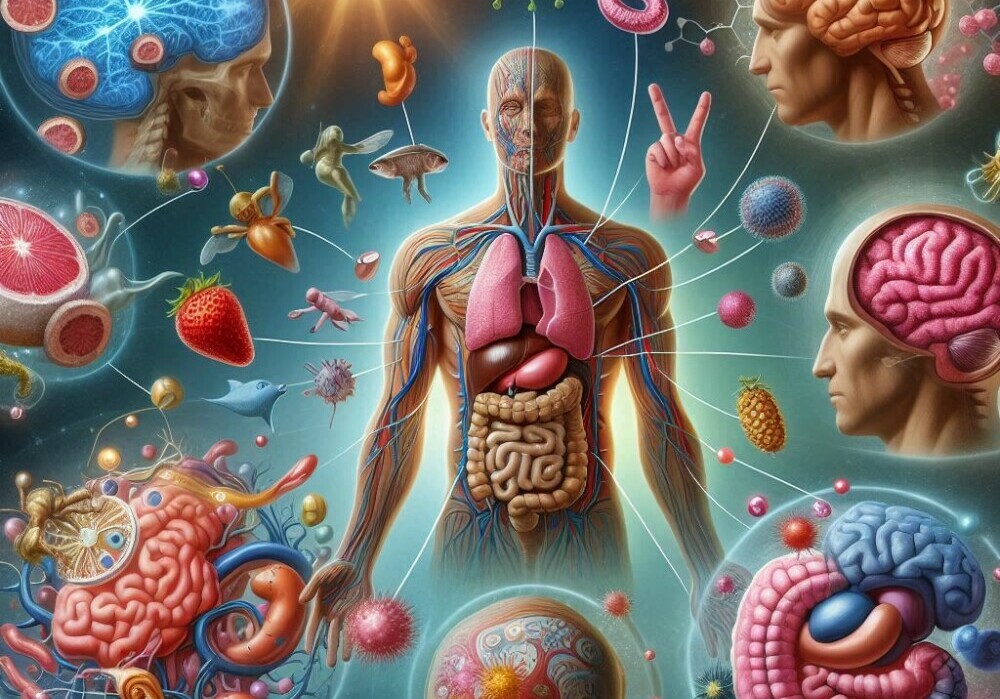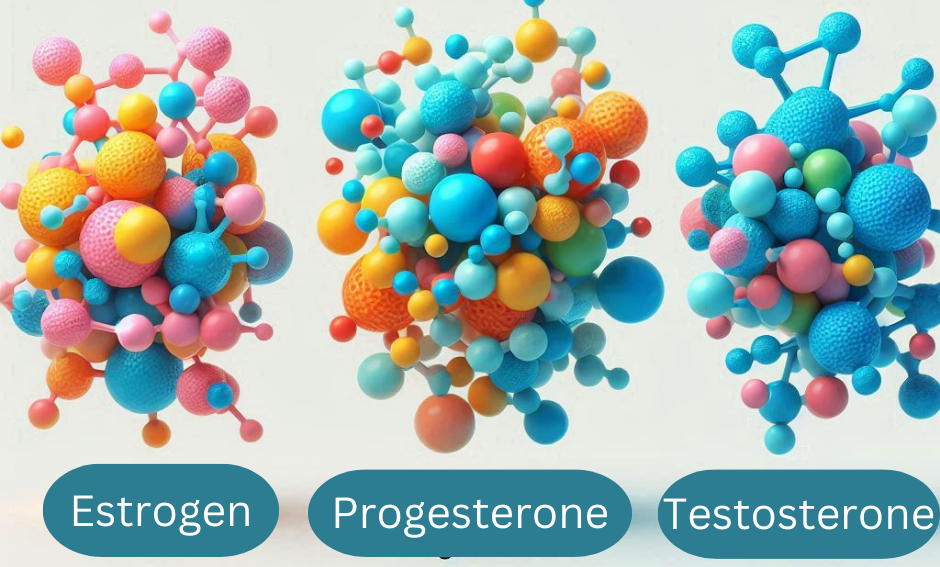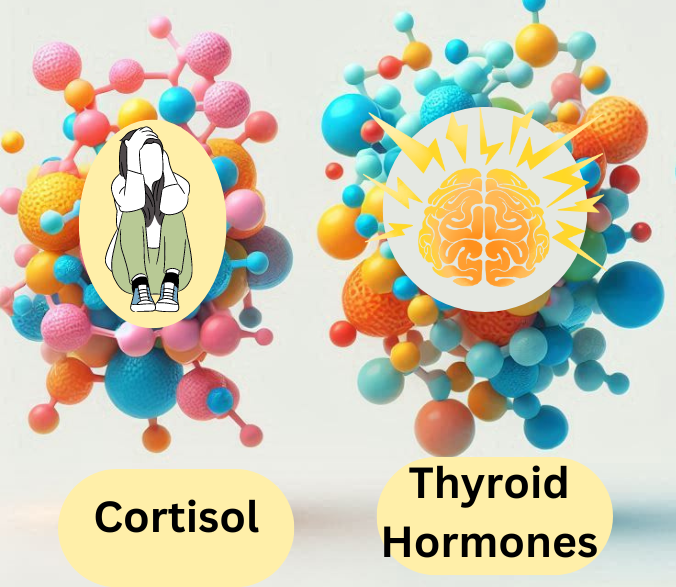Introduction to Multiple Sclerosis (MS) and Hormones
If you’ve heard of Multiple Sclerosis (MS), you might know it as a disease that can cause anything from mild numbness to severe paralysis. But what you might not know is how hormones come into play. Hormones are the body’s chemical messengers, orchestrating processes from growth to mood regulation, and yes, they’re a key player in diseases like MS.
Understanding Hormones
 So, let’s pause for a moment. When I talk about hormones, I’m referring to substances our glands produce to signal different parts of the body to do their job. They’re essential, and when they’re out of balance, things can go haywire, particularly for someone with MS.
So, let’s pause for a moment. When I talk about hormones, I’m referring to substances our glands produce to signal different parts of the body to do their job. They’re essential, and when they’re out of balance, things can go haywire, particularly for someone with MS.
Hormonal changes can be significant in a person’s MS symptoms. It’s pretty remarkable to see that MS symptoms often improve during pregnancy, a time when certain hormone levels, such as estrogen, soar.
Key Hormones in MS Research
 The spotlight in MS research often shines on estrogen and testosterone. Studies have shown that these hormones might just have a part to play in the MS story. Estrogen, traditionally associated with female reproductive health, has been found to possibly have protective effects on the brain and may help in managing MS. Testosterone, on the other hand, often linked with males, also seems to have the potential to protect against MS progression.
The spotlight in MS research often shines on estrogen and testosterone. Studies have shown that these hormones might just have a part to play in the MS story. Estrogen, traditionally associated with female reproductive health, has been found to possibly have protective effects on the brain and may help in managing MS. Testosterone, on the other hand, often linked with males, also seems to have the potential to protect against MS progression.
But this isn’t just about knowing which hormones are involved; it’s also about understanding how they can be harnessed for treatment. Researchers are tirelessly exploring hormone-based therapies with the hope of offering better management strategies to those living with MS.
The roles of hormones in the treatment and progression of MS
Hormones play a critical role in the management and progression of multiple sclerosis (MS) for several reasons:
Immune System Modulation

- Estrogen and Progesterone: These hormones, particularly estrogen, have been found to have immunomodulatory effects. They can reduce inflammation and potentially slow down the progression of MS. During pregnancy when levels of these hormones are high, many women with MS experience a reduction in relapse rates.
- Testosterone: This hormone is believed to have neuroprotective properties and may also help modulate the immune response in men with MS, although more research is needed.
Neuroprotection and Myelin Repair
- Estrogen: Beyond its role in the immune system, estrogen may help protect nerve cells and promote the repair of myelin, the protective sheath around nerves that is damaged in MS.
- Progesterone: This hormone is also thought to support myelin repair and protect nerve cells from damage.
Regulation of Mood and Cognition

- Cortisol: This stress hormone can affect mood and cognition, which are often areas of concern for people with MS. Dysregulated cortisol levels can exacerbate symptoms of depression and anxiety.
- Thyroid Hormones: These hormones are essential for brain function and energy metabolism. Thyroid dysfunction can lead to fatigue, depression, and cognitive impairment, all of which are common in MS.
Bone Health

- Estrogen: Women with MS are at increased risk for osteoporosis, partly due to reduced physical activity and the use of certain medications. Estrogen plays a vital role in maintaining bone density, and its decline after menopause can increase the risk of fractures.
- Vitamin D: While not a hormone in the traditional sense, vitamin D acts like one in the body. Adequate levels are crucial for bone health and immune function. There is also evidence suggesting that vitamin D may play a role in reducing the risk and severity of MS.
Fatigue and Energy Levels

- Thyroid Hormones and Cortisol: Proper regulation of these hormones is essential for maintaining energy levels and managing fatigue, a common and debilitating symptom of MS.
Hormones influence multiple aspects of MS, from immune system regulation and neuroprotection to mood, cognition, and bone health. Understanding and managing hormone levels can be an important part of a comprehensive approach to treating and living with MS.
Navigating the Future of MS Treatment
Looking forward, the horizon seems bright with ongoing research and the emergence of new therapeutic strategies. If you want to stay updated on these developments, the MS community is an invaluable resource.
Staying Informed and Connected
Choose something that resonates with you, whether it’s diving into the literature or joining support groups. Remember, your first attempt at managing MS with hormone therapy doesn’t need to be your last; you can always adjust your approach down the road.
Confidence and Clarity in Treatment
In my opinion, armed with the right information and a strong support network, you can navigate the complexities of hormone treatments with greater confidence and clarity. Don’t worry too much about the speed of your progress – focus on the direction.
Regulating hormonal balance naturally
Regulating hormonal balance naturally can be approached through lifestyle changes, diet, and stress management. Here are some effective strategies:
Balanced Diet

- Whole Foods: Incorporate plenty of fruits, vegetables, whole grains, and lean proteins.
- Healthy Fats: Include sources of healthy fats like avocados, nuts, seeds, and olive oil.
- Limit Sugar and Refined Carbs: Reduce intake of sugary foods and refined carbohydrates.
- Fiber: High-fiber foods help regulate hormones like insulin.
- Phytoestrogens: Foods like flaxseeds, soy, and legumes contain phytoestrogens that can help balance hormones.
Regular Exercise

- Cardio and Strength Training: Both types of exercise help regulate hormones.
- Yoga and Pilates: These can help reduce stress and improve hormonal balance.
Adequate Sleep

- Aim for 7-9 hours of quality sleep per night to support hormone regulation.
Stress Management

- Mindfulness and Meditation: Practicing mindfulness and meditation can help reduce stress hormones like cortisol.
- Relaxation Techniques: Activities like deep breathing, progressive muscle relaxation, and spending time in nature can help.
Hydration

- Drink plenty of water to support overall health and hormonal balance.
Limit Toxins

- Avoid Endocrine Disruptors: Reduce exposure to chemicals found in plastics, pesticides, and personal care products.
- Clean Eating: Opt for organic foods when possible to avoid pesticides and other chemicals.
Supplements

- Vitamin D: Adequate levels are important for hormone production.
- Omega-3 Fatty Acids: Found in fish oil or flaxseed oil, they support hormone health.
- Probiotics: A healthy gut can influence hormone balance.
Regular Health Check-ups
- Regular visits to a healthcare provider can help monitor hormone levels and overall health.
Herbal Remedies

- Maca Root: Known for balancing hormones.
- Ashwagandha: Helps manage stress and cortisol levels.
- Chasteberry (Vitex): Can support menstrual cycle regulation.
Avoid Excessive Caffeine and Alcohol

- Limit intake as they can interfere with hormone balance.
Implementing these natural methods can help maintain and regulate hormonal balance effectively.
I really hope that this discussion has illuminated the interplay between hormones and MS for you and that you feel better equipped to have informed conversations with your healthcare providers about your options.
Elena
References:
- Sex hormone therapy in multiple sclerosis: A systematic review of clinical trials
- Hormonal therapies in multiple sclerosis: a review
- Sex hormones as key modulators of the immune response in MS
- The role of sex hormones in Multiple Sclerosis
- Vitamin D and multiple sclerosis: A comprehensive review
- Vitamin D as an immune modulator in multiple sclerosis
This article is for informational purposes only and is not a substitute for professional medical advice. Always consult your doctor before making health-related decisions.

